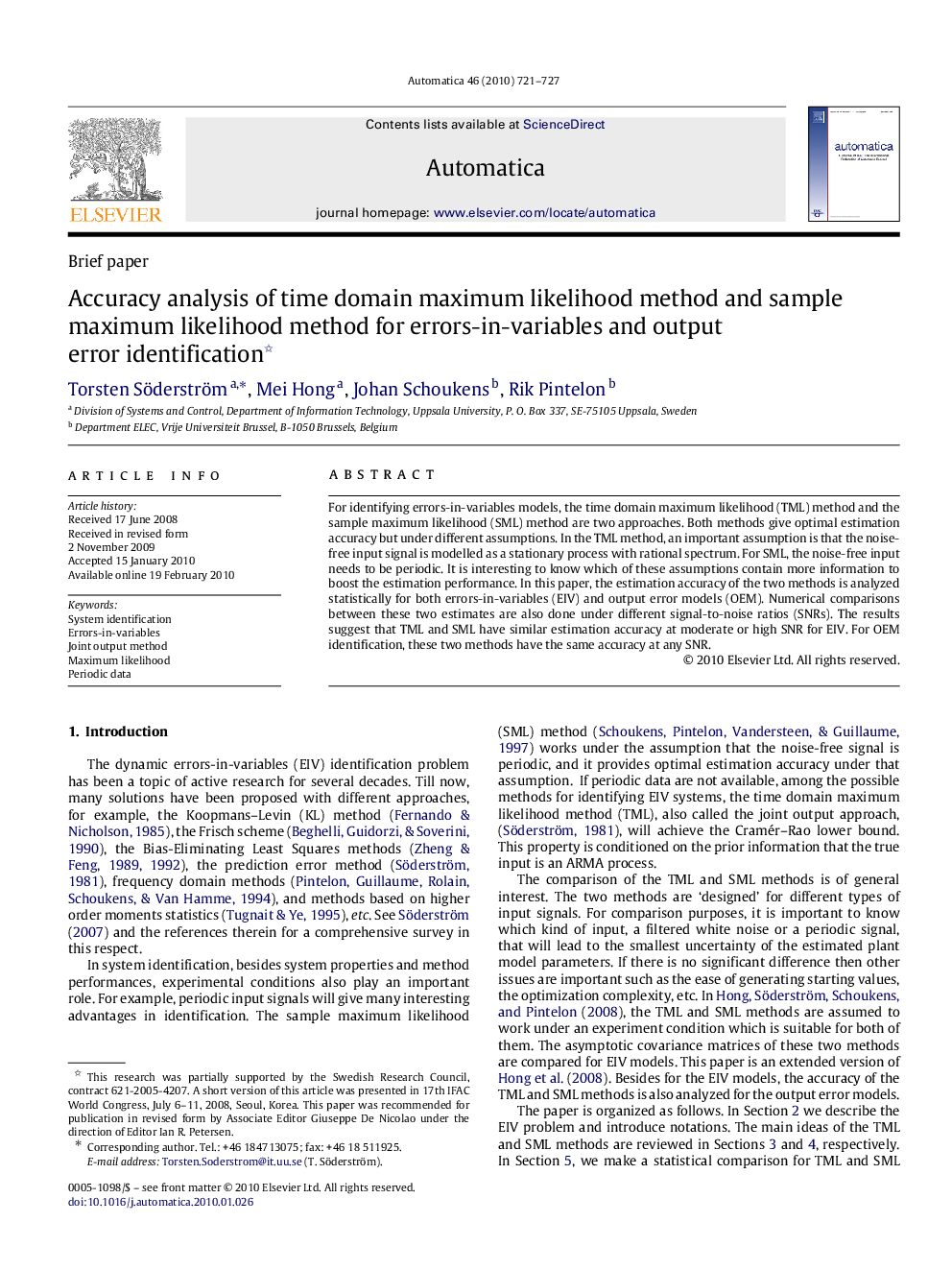| کد مقاله | کد نشریه | سال انتشار | مقاله انگلیسی | نسخه تمام متن |
|---|---|---|---|---|
| 696568 | 890341 | 2010 | 7 صفحه PDF | دانلود رایگان |
عنوان انگلیسی مقاله ISI
Accuracy analysis of time domain maximum likelihood method and sample maximum likelihood method for errors-in-variables and output error identification
دانلود مقاله + سفارش ترجمه
دانلود مقاله ISI انگلیسی
رایگان برای ایرانیان
کلمات کلیدی
موضوعات مرتبط
مهندسی و علوم پایه
سایر رشته های مهندسی
کنترل و سیستم های مهندسی
پیش نمایش صفحه اول مقاله

چکیده انگلیسی
For identifying errors-in-variables models, the time domain maximum likelihood (TML) method and the sample maximum likelihood (SML) method are two approaches. Both methods give optimal estimation accuracy but under different assumptions. In the TML method, an important assumption is that the noise-free input signal is modelled as a stationary process with rational spectrum. For SML, the noise-free input needs to be periodic. It is interesting to know which of these assumptions contain more information to boost the estimation performance. In this paper, the estimation accuracy of the two methods is analyzed statistically for both errors-in-variables (EIV) and output error models (OEM). Numerical comparisons between these two estimates are also done under different signal-to-noise ratios (SNRs). The results suggest that TML and SML have similar estimation accuracy at moderate or high SNR for EIV. For OEM identification, these two methods have the same accuracy at any SNR.
ناشر
Database: Elsevier - ScienceDirect (ساینس دایرکت)
Journal: Automatica - Volume 46, Issue 4, April 2010, Pages 721-727
Journal: Automatica - Volume 46, Issue 4, April 2010, Pages 721-727
نویسندگان
Torsten Söderström, Mei Hong, Johan Schoukens, Rik Pintelon,